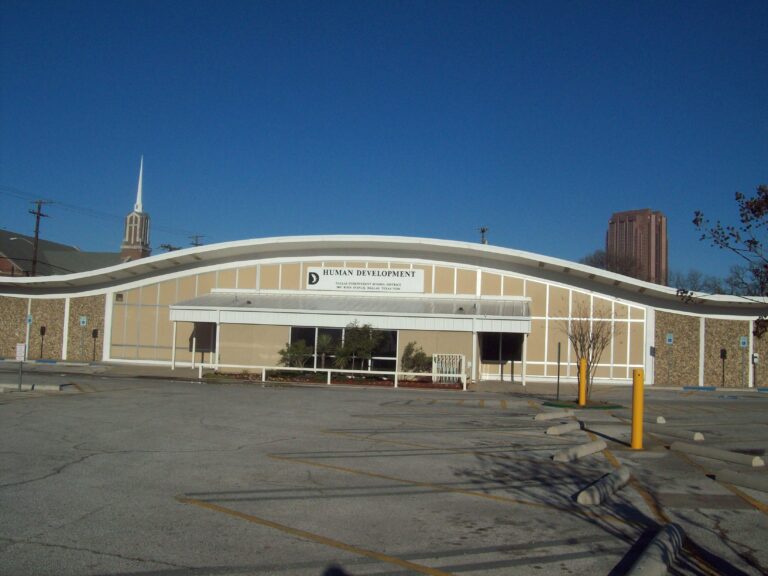Transforming Dallas Public Education: A Blueprint for Sustainable Growth and Equity
The evolution of Dallas’ public education system is a critical determinant of the city’s future prosperity, economic strength, and social cohesion. As Dallas expands into a vibrant metropolitan center, the performance and inclusiveness of its schools are under heightened examination by educators, policymakers, families, and civic leaders. This analysis delves into the pivotal challenges and promising initiatives within the Dallas Independent School District (DISD) and other public education entities, focusing on equitable funding, curriculum innovation, and the integration of advanced technology. The success of Dallas’ public schools will significantly influence the city’s development trajectory in the coming decades.
Strategic Allocation of Public School Funding Amidst Dallas’ Growth
With Dallas experiencing rapid population growth and shifting demographics, city officials face the complex task of distributing educational resources to meet the needs of a diverse and growing student body. The financial decisions made today will affect everything from class sizes to access to digital tools. In the context of constrained budgets, school districts are exploring several strategic priorities, including:
- Expanding access to early childhood education to lay a strong foundation for lifelong learning and academic achievement
- Enhancing teacher retention programs aimed at reducing turnover and sustaining high-quality instruction
- Modernizing school facilities to ensure safe, welcoming, and technologically equipped environments
- Implementing innovative digital learning solutions to support both in-person and remote education models
Addressing equity remains central to these funding discussions, as schools in historically underserved areas often require additional support to close persistent achievement gaps. Recent budget proposals emphasize balancing investments between high-need and affluent districts to guarantee all students have equitable opportunities. The table below outlines the current funding priorities under consideration:
| Funding Category | Allocated Budget | Primary Objective |
|---|---|---|
| Teacher Compensation | $120 Million | Recruitment and Retention |
| Technology Enhancements | $75 Million | Expanding Digital Access |
| Facility Upgrades | $90 Million | Safety and Modernization |
| Student Wellness Services | $60 Million | Mental Health and Counseling |
Advancing Education Through Innovative Programs and Technology
Dallas ISD is at the forefront of educational transformation by integrating forward-thinking programs that nurture creativity, critical thinking, and digital fluency. Across the district, schools are embracing project-based learning, STEAM-focused curricula, and adaptive learning platforms tailored to individual student needs. This shift is supported by comprehensive professional development, equipping teachers with the skills to effectively utilize emerging technologies and engage a generation immersed in digital culture.
To realize this vision, the district has rolled out initiatives such as providing every student with a personal device and enhancing classroom internet connectivity. These efforts are complemented by sophisticated data analytics systems that monitor student progress in real time, enabling educators to offer personalized support promptly. Key technology-driven programs currently active in Dallas schools include:
| Initiative | Goal | Outcomes |
|---|---|---|
| Interactive STEM Labs | Hands-on science and engineering projects | Boosted student engagement by 30% |
| AI-Enhanced Tutoring Systems | Customized academic assistance | Raised standardized test scores by 12% |
| Immersive Virtual Reality Lessons | Experiential learning in history and science | Improved knowledge retention and understanding |
Empowering Student Achievement Through Community and Family Engagement
Recognizing that student success extends beyond classroom instruction, Dallas schools are fostering robust partnerships with local organizations and encouraging active family involvement. Programs such as mentorships with neighborhood businesses, after-school enrichment activities, and community learning centers create supportive ecosystems that enhance both academic and social development. These collaborations help bridge cultural and economic divides, ensuring equitable access to educational opportunities.
Parental engagement remains a vital factor in student achievement, with studies consistently linking it to improved academic performance, attendance, and motivation. Dallas schools are innovating by offering flexible meeting times, multilingual communication tools, and workshops that empower parents to advocate effectively for their children. The following table highlights measurable impacts from recent community engagement efforts:
| Engagement Program | Results |
|---|---|
| Family Reading Nights | 30% improvement in student literacy levels |
| Community Support Fairs | Over 500 families connected to vital resources |
| Parent Leadership Development | 40% increase in parental involvement in school governance |
Essential Policy Reforms to Close Equity and Achievement Gaps
Addressing longstanding disparities in Dallas’ public education requires deliberate policy changes focused on directing resources to underserved communities. Key reforms include expanding culturally responsive teaching materials, increasing early childhood education access, and boosting funding for bilingual and special education programs. Additionally, policies promoting smaller class sizes and enhanced teacher professional development are critical to improving outcomes in marginalized neighborhoods.
Moreover, accountability frameworks must evolve beyond reliance on standardized testing to incorporate comprehensive measures such as student engagement, social-emotional learning, and community participation. The following framework outlines priority reform areas alongside their objectives and success indicators:
| Reform Focus | Goals | Success Metrics |
|---|---|---|
| Equitable Funding | Boost per-student investment in economically disadvantaged zones | Annual increases in targeted funding allocations |
| Curriculum Innovation | Adopt inclusive and culturally relevant instructional materials | Higher student engagement and improved academic results |
| Expanded Accountability | Implement multi-faceted school performance evaluations | Broader assessment criteria beyond test scores |
| Teacher Development | Strengthen training programs and reduce staff turnover | Lower attrition rates in high-need schools |
Conclusion: Building a Brighter Future Through Education
As Dallas navigates a dynamic social and economic landscape, the direction of its public education system will be instrumental in shaping the city’s long-term success. Prioritizing innovative policies, equitable resource distribution, and strong community collaboration is vital to preparing every student for a thriving future. The effectiveness of these efforts will not only elevate educational quality but also foster a more inclusive and prosperous Dallas for generations ahead.







